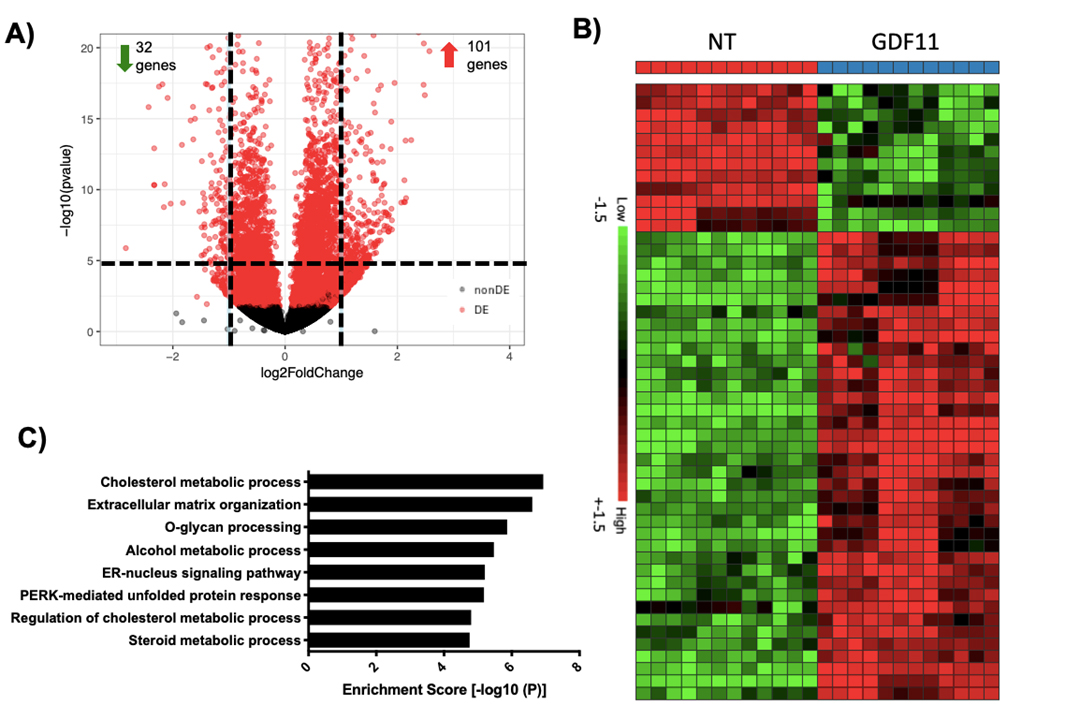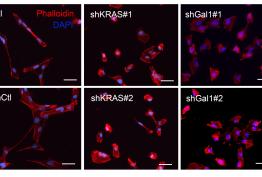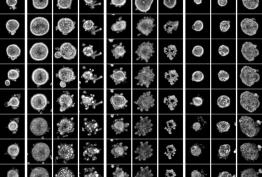Growth differentiation factor 11 (GDF11) has been characterized as a key regulator of tumor cell differentiation, playing a role as a tumor suppressor. A recent study, co-directed by Dr. Carmen García-Ruiz (from the IIBB-CSIC) and Dr. Concepción Gutiérrez-Ruiz and Luis Gómez-Quiroz from the Autonomous Metropolitan University (UAM) of Mexico, reveals a new role of GDF11 in hepatocellular carcinoma (HCC). RNA-Seq analysis shows a clear impact of GDF11 at the transcriptomic level, affecting the expression of genes involved in cholesterol synthesis and the repression of signaling via mTOR. Furthermore, GDF11 attenuates the glycolytic capacity of HCC cells, as well as the capacity for oxidative phosphorylation. These results are reflected in changes in the morphology of the mitochondria with alterations in the ridges and surface of the inner mitochondrial membrane. This study identifies GDF11 as a new therapeutic strategy for the treatment of HCC by preventing the metabolic alterations associated with HCC.
Image: Molecular Profile of Hepatocellular Carcinoma (HCC) cells exposed to GDF11
Paper reference:: Sharik Hernandez, Arturo Simoni‐Nieves, Monserrat Gerardo‐Ramírez, Sandra Torres, Raquel Fucho, Jonathan Gonzalez, Lyssia Castellanos‐Tapia, Rogelio Hernández‐Pando, Elizabeth Tejero‐Barrera, Leticia Bucio, Verónica Souza, Roxana Miranda‐Labra, José C. Fernández‐Checa, Jens U. Marquardt, Luis E. Gomez‐Quiroz, Carmen García‐Ruiz*, María C. Gutiérrez‐Ruiz*. GDF11 restricts aberrant lipogenesis and changes in mitochondrial structure and function in human hepatocellular carcinoma cells. J Cell Physiol. https://doi.org/10.1002/jcp.30151







